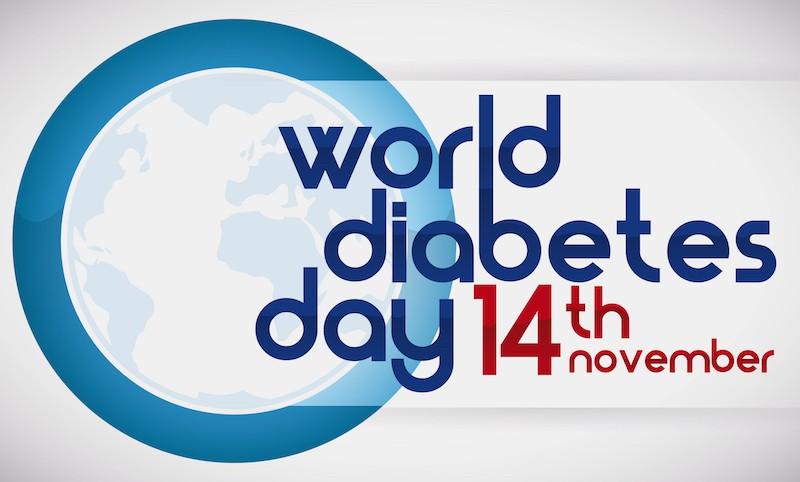Today, November 14, is World Diabetes Day. The day, which is observed in 170 countries and territories, commemorates the birthday of Sir Frederick Banting, the man who, alongside Charles H. Best and JJR Macleod at the University of Toronto in 1921, co-discovered insulin. The development of therapeutic insulin in 1921 was a landmark breakthrough in the history of medicine.
The World Diabetes Day was first created in 1991 by the International Diabetes Foundation (IDF) and the World Health Organisation (WHO) to draw global attention to diabetes, a chronic disease that occurs either when the pancreas does not produce enough insulin or when the body cannot effectively use the insulin it produces.
- Buhari assures Turkey of support against terrorism
- Why FG may not implement Orosanye Report before 2023
But in all cases, whether the pancreas does not produce enough insulin or cannot effectively use the one it produces, there is a buildup of sugar levels in the bloodstream.
Diabetes has two major categories – Type 1 and Type 2 – and is caused by a combination of genetic or environmental factors. But there are also the Pre-diabetes and the Gestational diabetes.
Generally, its symptoms include but are not limited to excessive excretion of urine, thirst, constant hunger, weight loss, vision changes and fatigue. The WHO and IDF also note that being overweight or obese greatly increases the chances of having Type 2 diabetes, which has grown to epidemic proportions.
Type I diabetes, formerly known as juvenile diabetes, is just as serious a health threat. While the cause is unknown, the health effects are just as devastating.
When untreated, it is one of the common causes of sudden death, amputations, kidney failure, heart attacks, strokes and blindness.
The 10th edition of the IDF Diabetes Atlas revealed that 537 million adults around the world are living with diabetes. WHO predicts that by 2030, diabetes will be the seventh leading cause of death in the world.
Novo Nordisk, a global healthcare company, said “Nigeria has 3.6 million adults (20-79 years) and 4,440 children and adolescents (0-19 years) living with diabetes, with a projected increase of about 134% by 2045.”
To drive home the point, experts in the health sector have declared that 11.2 million Nigerians are currently living with varying levels including pre-diabetes condition, advising every citizen to practice preventive measures in order to reduce its prevalence.
It’s estimated that one in two adults with diabetes is undiagnosed, which explains why WHO and IDF created World Diabetes Day to help spread awareness of how to prevent contracting the illness and limit the alarming rise in such a preventable disease.
For example, Type II diabetes can be limited through a healthy diet, regular physical activity and maintaining a normal weight. Tobacco use exacerbates Type II diabetes as well, and is best avoided.
Understanding diabetes is the first step towards managing and preventing it. People living with diabetes and those who care for them must make informed decisions about their condition.
So, privileged individuals and Non-Governmental Organisations (NGOs) should partner with relevant government health officials to offer diabetes screenings, disseminate information and brochures, and provide information on what people can do to prevent Type II diabetes and stay healthy, either at offices or neighborhoods.
This is because the major challenge of diabetes management is ignorance, which explains why awareness and education on the disease are very important.
Early diagnosis is also very important for all types of diabetes as this can save lives, prevent a medical emergency and reduce the risk of life-changing complications later.
The Diabetes Association of Nigeria says diabetes’ management is very costly, leaving poor patients unable to afford diabetes care.
We, therefore, applaud the Memorandum of Understanding (MOU) recently signed between the Federal Ministry of Health and Novo Nordisk, to enable the roll-out of affordable care treatment for diabetes in Nigeria. This way, there will be access to affordable diabetes care for vulnerable patients, through the Affordability Programme designed for retired and elderly people over the age of 55, who have limited income and health coverage, and the Changing Diabetes in Children programme for children living with Type 1 diabetes.
But this will only reach 12,000 patients, including an additional 2,400 children. In that light we call for more interventions by local, state and federal governments, NGOs and other public spirited individuals.
This year’s theme, ‘Access to Diabetes Education’, is apt as it underpins the larger multi-year theme of ‘access to care.’ Indeed, the main avenue to stop the harmful effects of the disease, apart from early detection, lies in scaling-up access to diabetes medicines and care. We urge hospitals and clinics to make a deliberate effort by placing information on diabetes on their boards for all visiting them to see and read and if possible in the major Nigerian languages.
So, today serves as a call to all Nigerians to get informed about diabetes and its symptoms, get tested, and get treatment. As we know, only a nation with a healthy population can prosper.

 Join Daily Trust WhatsApp Community For Quick Access To News and Happenings Around You.
Join Daily Trust WhatsApp Community For Quick Access To News and Happenings Around You.


